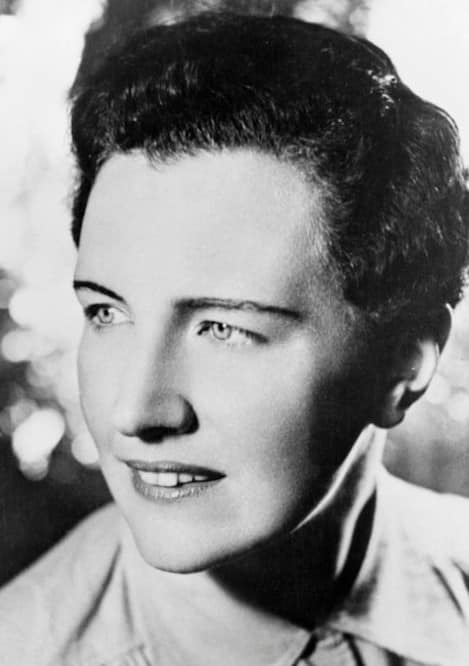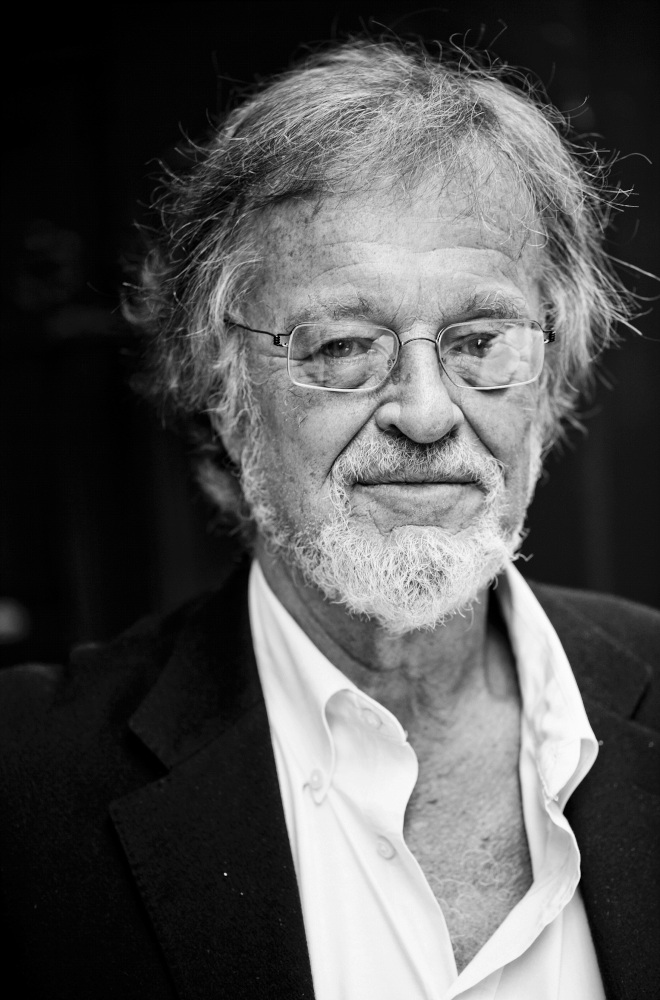 Nurse Turned Novelist
Nurse Turned Novelist
Mary Renault was a British novelist best known for her series of historical fiction set in ancient Greece. Born Eileen Mary Challans, she attended St Hugh’s College, Oxford, where she studied English. After graduation, she worked as a nurse and later as a writer for the Daily Worker.
Mary Renault’s breakthrough as a novelist came in 1944 with the publication of her first historical novel, ‘Purposes of Love’. She went on to write several other acclaimed works of historical fiction, including ‘The King Must Die’ and its sequel ‘The Bull from the Sea’, which retell the myth of Theseus.
Best Mary Renault Books
| Photo | Title | Rating | Length | Buy |
|---|---|---|---|---|

|
Alexander The Great Series | 9.96/10 | 3 Books | Check Price On Amazon |

|
Theseus Series | 9.92/10 | 2 Books | Check Price On Amazon |

|
The Charioteer | 9.84/10 | 352 Pages | Check Price On Amazon |

|
The Last of the Wine | 9.74/10 | 400 Pages | Check Price On Amazon |

|
The Mask of Apollo | 9.72/10 | 384 Pages | Check Price On Amazon |
A Trip to Ancient Greece
In addition to her historical novels, Renault also wrote a biography of Alexander the Great (which we will review later), which was published in 1975. Her work has been praised for its vivid and accurate depictions of ancient Greek culture and society, as well as its sympathetic treatment of same-sex relationships.
Renault was openly gay and lived with her partner, Julie Mullard, for over 40 years. She was also a keen student of Jungian psychology and incorporated its concepts into her writing. Despite suffering from arthritis in her later years, Renault continued to write until her death in 1983.
Alexander The Great Series
 Triple Threat
Triple Threat
The first set of book reviews in our list is Mary Renault’s Alexander the Great series, consisting of three historical novels: ‘Fire From Heaven’, ‘The Persian Boy’, and ‘Funeral Games’. This best book series sees Mary Renault follow the life of Alexander the Great, from his childhood in Macedon to his great conquests of the Persian Empire and beyond, as well as the aftermath of his death and the power struggles among his successors.
‘Fire From Heaven’ starts the reader off with Alexander’s childhood and his relationship with his parents, King Philip II and Queen Olympias and the struggles that came with it. The novel explores Alexander’s education under the great Aristotle and his development as a revered military leader whose fame stretched from Greece and Egypt to India.
A Different Set of Eyes
‘The Persian Boy’ aims to trace the last years of Alexander’s life, narrated by Bagoas, a eunuch and former Persian nobleman who becomes Alexander’s lover and trusted advisor after the Macedon army conquered his homeland. Their relationship serves as sustenance to Alexander as he weathers plots, the demands of two foreign wives, a mutinous army at times and even his own temper.
The third and final book to the trilogy, ‘Funeral Games’, takes place after Alexander’s death and focuses on the power struggles among his generals, known as the Diadochi, as they fight for control of his empire. Watch as fifteen years of events transpires after Alexander’s death as his mighty empire disintegrates, bringing the series of Mary Renault’s best-selling books to a close.
Detailed Depictions
Throughout the series, Mary Renault’s writing is characterized by her vivid and detailed depictions of ancient Greek and Persian culture and society which places this trilogy of books on top for me. Renault’s portrayal of Alexander himself is multi-faceted, depicting him as a charismatic and brilliant military leader, plagued with inner demons that seek to destroy him before other adversaries.
One thing I appreciated about Renault’s writing was the depiction of the changing roles of women in ancient Greek society, including the constraints and opportunities they faced, and their positional evolution in politics and warfare. One character stood out most in this regard as she is portrayed as a formidable figure who seeks to protect her son’s legacy, but who is also driven by her own ambitions and desires.
Sympathetic and Nuanced
Another central aspect to the series is that of same-sex relationships. This can be seen with Alexander’s relationships with Hephaestion and Bagoas that are complex and passionate, and Renault’s writing is notable for its sympathetic and meaningful portrayal of same-sex love in a historical context which, during her time, was challenged.
I found the Alexander the Great series to be a powerful and compelling portrayal of one of history’s most legendary figures (and a personal favourite of mine), as well as the tumultuous political and cultural landscape of ancient Greece and Persia. Mary Renault’s writing and characterization make sure that the series of books became and stays a classic of historical fiction that should be read in order.
Theseus Series
 To Slay The Minotaur
To Slay The Minotaur
The Theseus series sees two powerhouse historical novels continue the trend of best rated books by Mary Renault. The series consists of ‘The King Must Die’ and ‘The Bull from the Sea’ and is a firm favorite for lovers of Greek mythology. It retells the myth of Theseus, the legendary king of Athens who slayed the Minotaur and united a city. We all might know the story, but Mary Renault allows us to live it in a way that has never been seen before.
‘The King Must Die’ follows Theseus from his childhood in Troizen to his arrival in Athens and his adventure to Crete to slay the beast. Along the way, he encounters a range of characters, including the priestess Ariadne, who becomes his lover, and the half-man, half-bull Minotaur, who becomes his rival. The novel is filled with action and adventure and is praised for its ability to bring the world of ancient Greece to life in a way that feels both exciting and authentic.
A King Is Dead?
‘The Bull from the Sea’ picks up where ‘The King Must Die’ left off, following Theseus as he returns to Athens and takes on the challenge of king. The novel explores his relationships with his family, his wives (yup, I said wives), and his political rivals, as well as his continued struggle to define his identity and his place in the world. Is Theseus able to maintain the responsibility of a wise ruler deserving of the title ‘The Founding Ruler of Athens’, or is he doomed to make the mistakes of his predecessors?
I found this follow-up to be more introspective and character-driven, having a bit of a change of pace. But it was just as engaging and well-written as its predecessor. Mary Renault’s ability to bring an ancient (and mythical) world to life, paired with richly detailed descriptions is beyond praise. Everything is well-drawn, from character development to their complex motivations – they feel real and relatable (even though they are mythical).
Not Your Average History Lesson
Another strength of the series is Mary Renault’s attention to historical accuracy which easily makes the Theseus collection some of the best novels by the author to date. While the Theseus myth is a work of fiction, Renault’s retelling is grounded in historical fact and archaeological evidence, something I find to be amiss in a lot of other similar novels. Renault can blend myth and history in a way that feels authentic and believable.
I found the Theseus series to be a triumph of historical fiction, curiously blending myth and history in a way that feels both authentic and exciting. Renault’s vivid writing and attention to historical detail serves as a must-read for anyone interested in the history and culture of ancient Greece. The series was brilliant and engrossing, and it is clear that the Theseus series continues to captivate readers to this day.
The Charioteer

 Love Is A Complex Thing
Love Is A Complex Thing
Mary Renault’s ‘The Charioteer’ is a powerful and deeply moving novel that best explores the complexities of love, identity, and morality during World War II. While less action-packed than her other historical fiction series, ‘The Charioteer’ aims to remain focused on character development and perspective, rather than grand action and adventure.
‘The Charioteer’ is set in a military hospital in England during the war, telling the story of Laurie Odell, a young soldier who is struggling to come to terms with his homosexuality. He falls in love with a fellow patient, Andrew Raynes, who is also gay, but must navigate the societal and moral constraints of the time. One day, things get more complicated when Ralph Lanyon, a mentor from his past, suddenly reappears as he is drawn into a social circle of world-weary gay men.
There Is Always A Choice
What sets ‘The Charioteer’ apart from Renault’s other works is its psychological depth and exploration of complex moral issues as Laurie is forced to choose between ideals of innocence and pleasures of experience. Through Laurie’s struggles with his sexuality and his relationships with secondary characters, Renault delves into questions of identity, morality, and social convention which I can only assume is drawn from experience.
As mentioned before, ‘The Charioteer’ is less action-packed than some of Renault’s other popular books, it is no less engrossing or well-written and it most definitely serves as a standalone great. The novel’s strength lies is in its characters, who are fully realized and deeply human, as characters try to make sense of their complicated lives. Overall, ‘The Charioteer’ is a masterful work of historical fiction that explores complex issues of love and identity in a time of war. For readers looking for a thought-provoking and emotionally powerful novel, ‘The Charioteer’ is not to be missed.
The Last of the Wine

 Love And War
Love And War
Mary Renault’s ‘The Last of the Wine’ is a comprehensive historical novel set in ancient Greece during the Peloponnesian War. Compared to some of Renault’s other works that are more focused on impactful heroism and adventure, ‘The Last of the Wine’ sees Mary Renault top a genre of books and touch on the delicacy of a relationship between two lovers.
The novel tells the story of Alexias, a young Athenian aristocrat who becomes a student of the philosopher Socrates. Along the way, he falls in love with a fellow student, Lysis, and must navigate the challenges of being a homosexual in ancient Greece. Against the backdrop of war and political upheaval, Alexias and Lysis’s love story unfolds, as they grapple with their own desires and the expectations of society.
A Journey of Emotions
The heart of the novel is the emotional journey of its protagonists. Renault’s writing in this novel is immersive, transporting the reader to ancient Athens and bringing its characters to life in all their intricacy and nuance. ‘The Last of the Wine’ shares some similarities with Mary Renault’s other top ranked books, particularly in its exploration of same-sex relationships and the challenges of being true to oneself in a society that doesn’t always accept difference.
However, the novel also delves into larger questions of morality, political power, and the human cost of war (as you would expect from a title that features Socrates). ‘The Last of the Wine’, in my opinion, is a beautifully written and deeply affecting book that best showcases Mary Renault’s skills as a writer and historian. For readers interested in historical fiction, LGBTQI themes, or simply a great story, ‘The Last of the Wine’ is must-read.
The Mask of Apollo

 Excuse The Politics
Excuse The Politics
Mary Renault’s ‘The Mask of Apollo’ is a historical novel (or in my eyes, a political thriller) set in ancient Greece that explores the nature of art, politics, and morality. The novel follows the life of the actor Nikeratos, who is recruited by the famous Athenian politician Dion of Syracuse to help him stage a play that will serve his political agenda. Being an actor, he was freely able to travel between cities which allowed him to become the centre of the political drama to follow (despite hating the subject).
As Nikeratos becomes embroiled in the world of politics and power, he must grapple with questions of art and philosophy, the relationship between the two and the effects they may have on society. What sets ‘The Mask of Apollo’ apart from Mary Renault’s other works (and easily earns the shared title of best books by the author in my opinion) is its emphasis on the role of art in society and its ability to influence political discourse.
Steady As She Goes
Filled with philosophical and political ideas and a continuous questioning, I can say this is one of the heavier reads when compared to other Mary Renault’s novels, and is best enjoyed at a steady pace. Niko is a wonderful fictional character that takes us on a journey of democracy versus tyranny and there is a slight tie in with the Alexander the Great trilogy that is amazing, putting the happenings of this novel within an even greater historical context.
Overall, ‘The Mask of Apollo’ is a thought-provoking and intellectually engaging novel. Renault’s beautiful style of writing is present throughout as she weaves descriptions of an ancient world into a compelling story of real and complex characters and interactions. For readers interested in philosophy, politics, or the role of art in society, ‘The Mask of Apollo’ should be next on your list.
The Nature of Alexander

 A Perfect Recollection
A Perfect Recollection
Mary Renault’s ‘The Nature of Alexander’ is a collection of essays that explores the life and legacy of Alexander the Great. This is Mary Renault’s only non-fiction title, focusing on historical analysis and scholarship, offering a more in-depth exploration of Alexander’s life and legacy. What is evident in this nonfiction addition to her collection is Mary Renault’s commitment to bringing history to life in its best and most curious form in all of her books.
The essays cover a wide range of topics related to Alexander’s life, including his childhood, military campaigns, and relationships with his companions. Renault draws on a wealth of historical sources and her own extensive knowledge of ancient Greece to offer a meaningful, objective, and insightful depiction of one of history’s most fascinating figures to date.
The More You Know
Usually, I am not the biggest fan of nonfiction exhibits but this entry felt different. I believe it is due to Renault’s commitment to historical accuracy and the realisation that it is her passion for the past that fed all her novels before. This is a writer that knows and utilises her material and the collection of essays had me absorbed from page one. It was incredible to compare the mindset of the past and gain insight into the famed leader’s actions.
‘The Nature of Alexander’ is a fascinating and insightful collection of works that sheds light on one of history’s most enigmatic figures. While it may not have the same level of narrative drive as some of her other works, it is no less. For readers interested in ancient history or the life and legacy of Alexander the Great, ‘The Nature of Alexander’ is must-read (before or after the series). You are bound to take away something you did not know.
The Praise Singer

 A Wealth Of Knowledge
A Wealth Of Knowledge
The novel follows Simonides as he navigates the complex world of ancient Greek society, using his talents as a poet and musician to gain favour with the powerful and influential. As he rises to fame and fortune, Simonides must grapple with questions of art, ethics, and the nature of power while engaging with famed characters like Pythagoras and Aischylos in what we know as a golden century.
We follow his journey from escaping a stern farming family as a child via a lucky apprenticeship, to meeting a variety of famed characters and falling witness to historical events that are known today. Whether it is learning to play the Kithara or write poetry, or navigating the shifting alliances surrounding his wealthy patron, there is a wealth of experience to be enjoyed by readers following Simonides’ tale.
A Blossoming City
Besides the story of one man’s life, Mary Renault navigates the development of a country. We see ancient Greece blossom into the classical Greece we think of today. Be warned, as you dive deeper and deeper into Simonides’ journey, have any form of Wiki nearby, because you will become curious about nearly everything that is mentioned.
The setting is not entirely political as Renault sweeps us away to scenes set in the athletic games and chariot races that are typical to the time period, as well as festivals and processions that dreams are made of. Renault has the knack of making a compelling and human account of the twists and turns of Classical Greek politics, making this read well worth it if you are a fan of Greek history and poetry alike.
Final Thoughts
In reading Mary Renault’s books, I was consistently struck by her exceptional writing style and unique approach to historical fiction. Renault has a remarkable talent for bringing the past to life, crafting rich and substantive narratives that transport readers to ancient Greece and beyond. What sets Renault apart from other authors is her ability to balance meticulous historical research with a deep understanding of human nature.
Moreover, Renault’s works are not just stories of the past, but reflections on the present. Overall, I am in awe of Mary Renault’s talents as a writer and historian. Her works are a testament to the enduring power of storytelling and the importance of understanding the past to inform the present. I would highly recommend her books to anyone interested in historical fiction or the human experience.
Michael Englert
Michael is a graduate of cultural studies and history. He enjoys a good bottle of wine and (surprise, surprise) reading. As a small-town librarian, he is currently relishing the silence and peaceful atmosphere that is prevailing.





